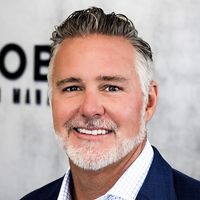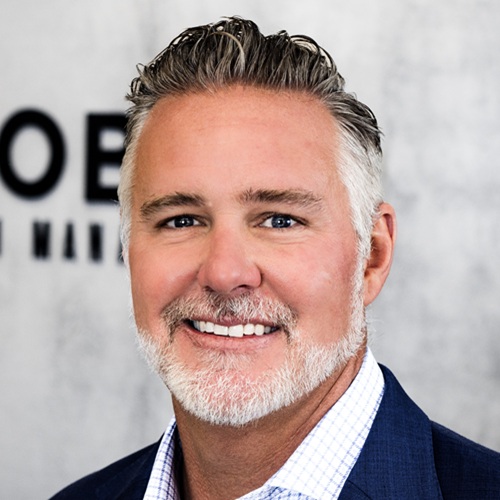4 Financial Planning Essentials to Ease Your Retirement Fears
Most pre-retirees are afraid of outliving their money. Having a plan can help ensure you don't.


Profit and prosper with the best of Kiplinger's advice on investing, taxes, retirement, personal finance and much more. Delivered daily. Enter your email in the box and click Sign Me Up.
You are now subscribed
Your newsletter sign-up was successful
Want to add more newsletters?

Delivered daily
Kiplinger Today
Profit and prosper with the best of Kiplinger's advice on investing, taxes, retirement, personal finance and much more delivered daily. Smart money moves start here.

Sent five days a week
Kiplinger A Step Ahead
Get practical help to make better financial decisions in your everyday life, from spending to savings on top deals.

Delivered daily
Kiplinger Closing Bell
Get today's biggest financial and investing headlines delivered to your inbox every day the U.S. stock market is open.

Sent twice a week
Kiplinger Adviser Intel
Financial pros across the country share best practices and fresh tactics to preserve and grow your wealth.

Delivered weekly
Kiplinger Tax Tips
Trim your federal and state tax bills with practical tax-planning and tax-cutting strategies.

Sent twice a week
Kiplinger Retirement Tips
Your twice-a-week guide to planning and enjoying a financially secure and richly rewarding retirement

Sent bimonthly.
Kiplinger Adviser Angle
Insights for advisers, wealth managers and other financial professionals.

Sent twice a week
Kiplinger Investing Weekly
Your twice-a-week roundup of promising stocks, funds, companies and industries you should consider, ones you should avoid, and why.

Sent weekly for six weeks
Kiplinger Invest for Retirement
Your step-by-step six-part series on how to invest for retirement, from devising a successful strategy to exactly which investments to choose.
When it comes to planning for retirement, it’s easy to get overwhelmed. Putting together a financial strategy can be complicated at any time of life, what with changing regulations, ups and downs in the market, and disagreements — even among the better-known investment advisers — about the best ways to save and spend money. But the closer you get to actually stopping that regular paycheck, the scarier things can get.
More than half of pre-retirees report feeling anxious about their impending retirement and worry they will run out of money.
What did they say made them feel more confident? Having a plan in place.
From just $107.88 $24.99 for Kiplinger Personal Finance
Become a smarter, better informed investor. Subscribe from just $107.88 $24.99, plus get up to 4 Special Issues

Sign up for Kiplinger’s Free Newsletters
Profit and prosper with the best of expert advice on investing, taxes, retirement, personal finance and more - straight to your e-mail.
Profit and prosper with the best of expert advice - straight to your e-mail.
If you’re ready to take control, talk to a financial adviser about these four financial planning essentials:
1. Put a tangible and comprehensive retirement plan in place.
Find a financial adviser who specializes in advance planning — not just investment planning, but also income planning (making sure you’re paying yourself the right way in retirement), tax planning strategies (minimizing your exposure so you’re not paying more than you have to), health care planning (finding the right Medicare plan for you and considering your long-term care needs) and legacy planning strategies (assuring your assets will pass efficiently to the people and/or charities of your choice). Then gather up your paperwork and get ready to get comprehensive.
2. Make sure your plan includes transitioning from growth to income investing.
People tend to get stuck in one investing strategy. They spend so many years trying to accumulate money, they forget to make the shift from the growth phase to the income phase when they retire.
One common mistake is to start taking systematic withdrawals — a set dollar amount — without changing to an income-type portfolio. That’s fine if the market is up: You make money, you take money — no harm, no foul. But if you’re pulling out money in a down market, you’re increasing the odds of running low on — or out of — funds.
Rework your plan to preserve your money as the years pass.
3. Be aware of fees and overpaying to own your investments.
Imagine you’re on a cruise and there are icebergs in the water. You know what’s above the water because you can see it, but you have no idea what’s below the surface. It’s the same thing in the financial planning industry: Advisers’ fees or the stated expense ratios on mutual funds are above the water and pretty easy to spot. But you really don’t know what’s below the surface unless you have a thorough evaluation of your portfolio.
People will come into our office for a consultation and tell us that they're paying just 1% to their advisers. But what they don't realize is that their portfolio is getting hit with another 4% or 5% in additional mutual fund costs or other expenses. Making sure your underlying investments are as cost efficient as possible is going to put more money in your pocket.
4. Consider a retirement income annuity to create a pension-like income in retirement.
A lot of people are retiring without a pension today. But they do have 401(k), 403(b) or 457 plans, and when they retire, they can use that money to create their own pension. Properly structured annuities with income benefits are the only investment that can make it unlikely that you will run out of money for as long as you live. Look for one that has an inflation hedge, so you don’t buy into a set figure today that won’t be enough if you live 20 or 30 years in retirement.
After all, a long retirement should be your goal — not your worst nightmare.
Kim Franke-Folstad contributed to this article.
Securities are offered through GF Investment Services, LLC, Member FINRA/SIPC. Investment advisory services offered through Global Financial Private Capital, LLC, an SEC registered investment advisor.
Any comments regarding safe and secure investments, and guaranteed income streams refer only to fixed insurance products. They do not refer, in any way to securities or investment advisory products. Fixed Insurance and Annuity product guarantees are subject to the claims‐paying ability of the issuing company and are not offered by Global Financial Private Capital or GF Investment Services.
This is provided for informational purposes only and is not intended to provide specific tax or legal advice or serve as the basis for any financial decisions. Be sure to speak with qualified professionals before making any decisions about your personal situation.
The appearances in Kiplinger were obtained through a PR program. The columnist received assistance from a public relations firm in preparing this piece for submission to Kiplinger.com. Kiplinger was not compensated in any way.
Profit and prosper with the best of Kiplinger's advice on investing, taxes, retirement, personal finance and much more. Delivered daily. Enter your email in the box and click Sign Me Up.

Grant Conness is Managing Director and Co-Founder of Global Wealth Management, recognized as the No. 1 financial advisory firm in Southeast Florida by USA TODAY's 2025 Best Financial Advisory Firms list.* With more than 20 years of experience, Grant focuses on helping clients navigate the critical five years before and after retirement through the firm's proprietary Retirement Roadmap Review process. Grant is co-host of Retire Now South Florida on NBC, CBS, ABC and FOX, and he has been quoted in The Wall Street Journal.** He is also co-author of Charting Your Financial Course.
-
 Nasdaq Leads a Rocky Risk-On Rally: Stock Market Today
Nasdaq Leads a Rocky Risk-On Rally: Stock Market TodayAnother worrying bout of late-session weakness couldn't take down the main equity indexes on Wednesday.
-
 Quiz: Do You Know How to Avoid the "Medigap Trap?"
Quiz: Do You Know How to Avoid the "Medigap Trap?"Quiz Test your basic knowledge of the "Medigap Trap" in our quick quiz.
-
 5 Top Tax-Efficient Mutual Funds for Smarter Investing
5 Top Tax-Efficient Mutual Funds for Smarter InvestingMutual funds are many things, but "tax-friendly" usually isn't one of them. These are the exceptions.
-
 Social Security Break-Even Math Is Helpful, But Don't Let It Dictate When You'll File
Social Security Break-Even Math Is Helpful, But Don't Let It Dictate When You'll FileYour Social Security break-even age tells you how long you'd need to live for delaying to pay off, but shouldn't be the sole basis for deciding when to claim.
-
 I'm an Opportunity Zone Pro: This Is How to Deliver Roth-Like Tax-Free Growth (Without Contribution Limits)
I'm an Opportunity Zone Pro: This Is How to Deliver Roth-Like Tax-Free Growth (Without Contribution Limits)Investors who combine Roth IRAs, the gold standard of tax-free savings, with qualified opportunity funds could enjoy decades of tax-free growth.
-
 One of the Most Powerful Wealth-Building Moves a Woman Can Make: A Midcareer Pivot
One of the Most Powerful Wealth-Building Moves a Woman Can Make: A Midcareer PivotIf it feels like you can't sustain what you're doing for the next 20 years, it's time for an honest look at what's draining you and what energizes you.
-
 I'm a Wealth Adviser Obsessed With Mahjong: Here Are 8 Ways It Can Teach Us How to Manage Our Money
I'm a Wealth Adviser Obsessed With Mahjong: Here Are 8 Ways It Can Teach Us How to Manage Our MoneyThis increasingly popular Chinese game can teach us not only how to help manage our money but also how important it is to connect with other people.
-
 Looking for a Financial Book That Won't Put Your Young Adult to Sleep? This One Makes 'Cents'
Looking for a Financial Book That Won't Put Your Young Adult to Sleep? This One Makes 'Cents'"Wealth Your Way" by Cosmo DeStefano offers a highly accessible guide for young adults and their parents on building wealth through simple, consistent habits.
-
 Global Uncertainty Has Investors Running Scared: This Is How Advisers Can Reassure Them
Global Uncertainty Has Investors Running Scared: This Is How Advisers Can Reassure ThemHow can advisers reassure clients nervous about their plans in an increasingly complex and rapidly changing world? This conversational framework provides the key.
-
 I'm a Real Estate Investing Pro: This Is How to Use 1031 Exchanges to Scale Up Your Real Estate Empire
I'm a Real Estate Investing Pro: This Is How to Use 1031 Exchanges to Scale Up Your Real Estate EmpireSmall rental properties can be excellent investments, but you can use 1031 exchanges to transition to commercial real estate for bigger wealth-building.
-
 Should You Jump on the Roth Conversion Bandwagon? A Financial Adviser Weighs In
Should You Jump on the Roth Conversion Bandwagon? A Financial Adviser Weighs InRoth conversions are all the rage, but what works well for one household can cause financial strain for another. This is what you should consider before moving ahead.